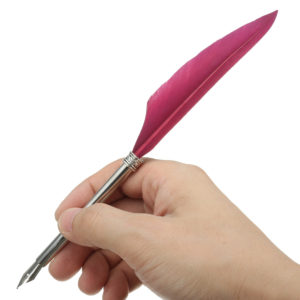Writing a query letter can sometimes be challenging for authors. What is a simple query letter formula to follow? We’ve provided that for you below.
How To Write a Query Letter
It can be daunting to write a good query letter, especially when you’re a new author seeking first time publishing. Most of our author friends agree that the process can be confusing. But sticking to the list of steps and following a simple query letter formula can make it much easier.
Most queries to literary agents will be by email. Email queries follow a different format that a traditional letter. For example, you don’t need to start with your address, the recipient’s name/title/ address, or date. Instead, simply begin with a greeting. However, if you are sending a typed letter by postal service, use the traditional format.
Paragraph One
You need to include your basic information in the first paragraph:
Title
Genre
Word count
Target audience/age range
Explain why you’ve chosen to submit to them, and include the hook and synopsis of your story.
Do your research to learn about the agent or publisher you’re approaching. Do they maintain a blog? If so, read it. Do they hate queries that ask a question that can easily be answered in the negative?
Writer: “Have you ever had a dream about living in a land where everything is made out of ice cream?”
Agent: “No.”
Thorough research will make your process easier.
Synopsis Rules
The synopsis needs to answer the basic questions:
Who is the main character?
What do they want and why?
Who or what is getting in the way?
What does the character do about it?
How does the problem escalate?
Don’t be vague. Editors and agents are busy professionals who want to quickly get down to business. What makes your story different from all the others out there? What is specific about these characters that will make us want to hear their story?
Never over-explain. Agents don’t want you to tell them what the audience will learn. The themes of the book should be evident from the synopsis.
No self-gratitude. Good writing is not about self-promotion so much as letting your writing speak for itself. Let your synopsis show agents that you can write well and with style. No one likes a grand-stander, but everyone loves good writing.
Don’t be boring. Your synopsis does not need to be dry and bland. It should be conversational, to an extent. You want to keep it professional but don’t be afraid let your excitement shine through. You’ve written a really good story. Be proud of that.
Please don’t give away the ending. Set up the main character, setting, conflict, what’s at stake, and what escalates the situation. Have a good cliff-hanger that leaves the reader wanting to request your manuscript.
Don’t be sloppy. Always put your best foot forward. Your synopsis should be well-written, revised several times and well-edited. Don’t leave any spelling or grammatical errors in the text. Make sure it is perfect!
Biography
Write a brief biography about yourself and make it relevant. Be certain to include whether you are a member of any writer’s associations, have won awards for literary excellence, or have published other works. Don’t bother telling the agent about your day job. They don’t care if you are a nurse or a stay-at-home dad. Your day job may or may not be relevant. For example, if you’re an elementary school teacher or librarian, it is. Don’t inflate your bio with irrelevant details like your dream of being a published author. If it’s your first book, don’t be embarrassed to say so. Every famous author in the world started with just one book.
Conclusion
If you’re querying a particular publisher, tell them whether this is an exclusive or multiple submission. Be courteous and thank the editor or agent for their time. And be sure to say that you look forward to hearing from them. But don’t say “soon”. Some agents and publishers view this as immature and impatient.
Signature
Sign your name in a neat, concise manner. Include your name and contact details and a link to your author’s website or blog. Make sure it looks professional.
The process of writing a query is not difficult when you know the correct formula. Stay professional, be courteous, and above all, be confident in yourself.
Do you have experience writing a query letter? Do you have a simple query letter formula that you follow? Share with us by posting a comment below.
We might earn a small affiliate commission from recommending products and services, and we may earn some revenue from ads. This is to help manage the costs of hosting and maintaining this website. Your support is appreciated. Click here to support us with Patreon: 80percentdone.


